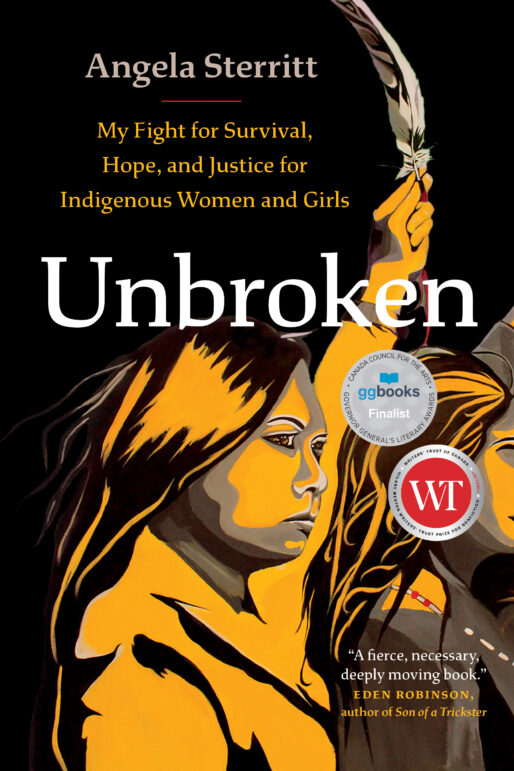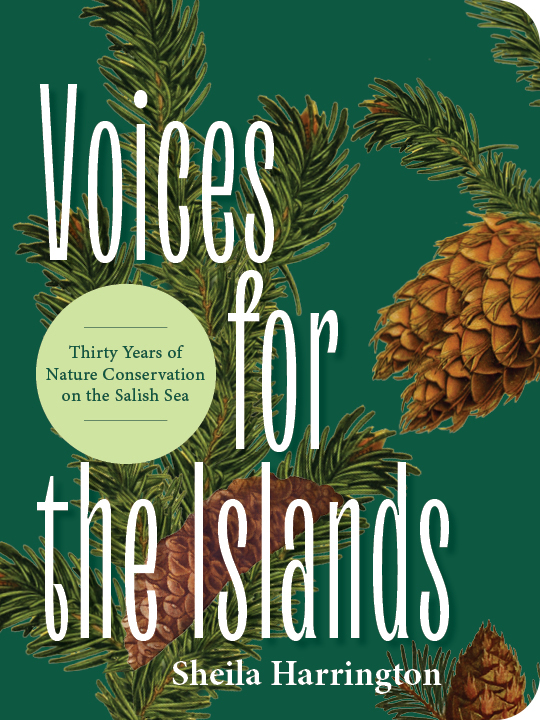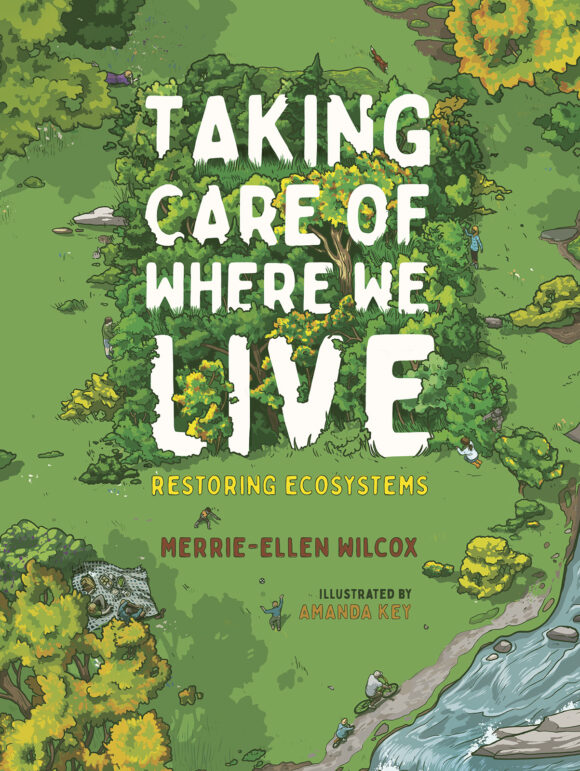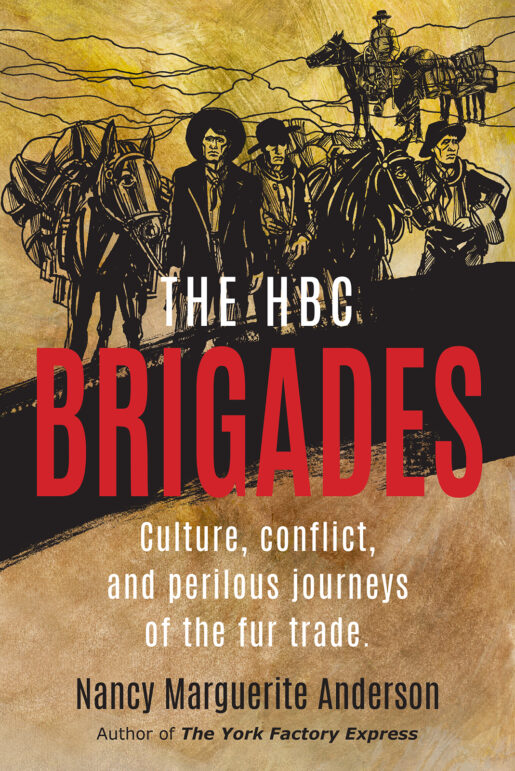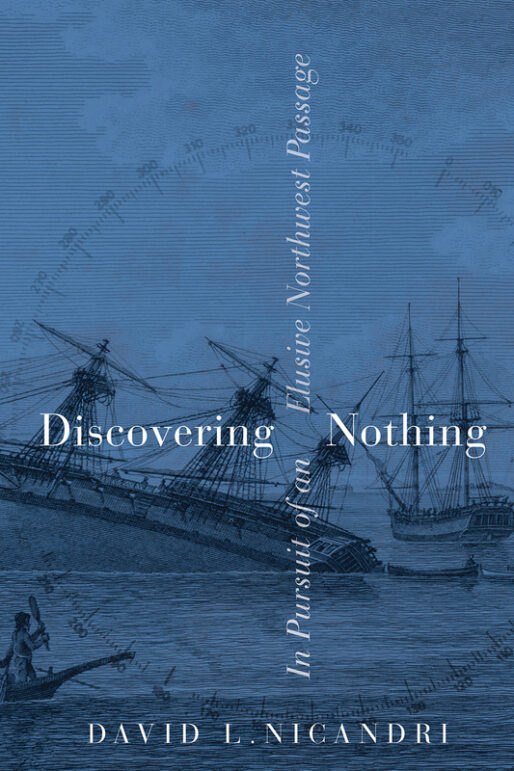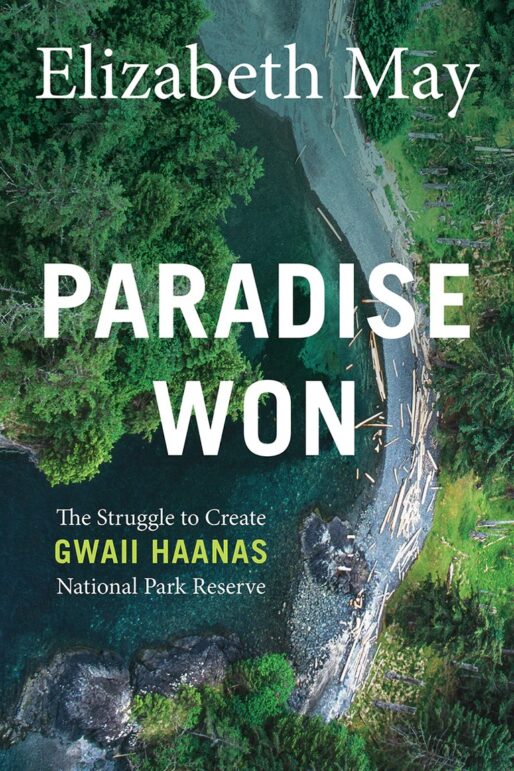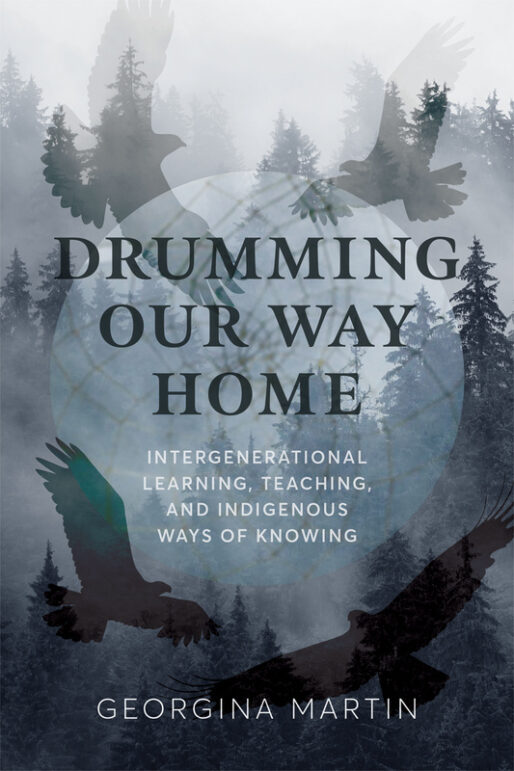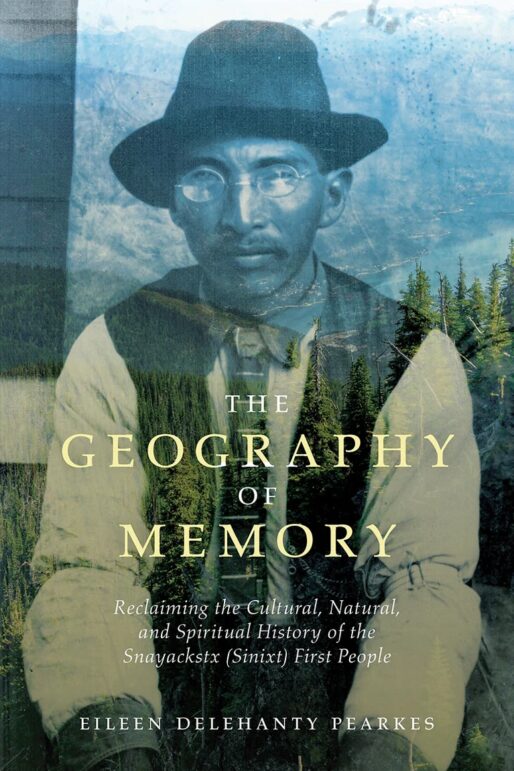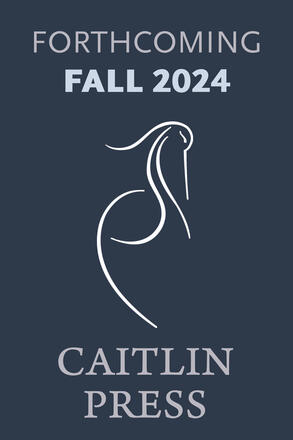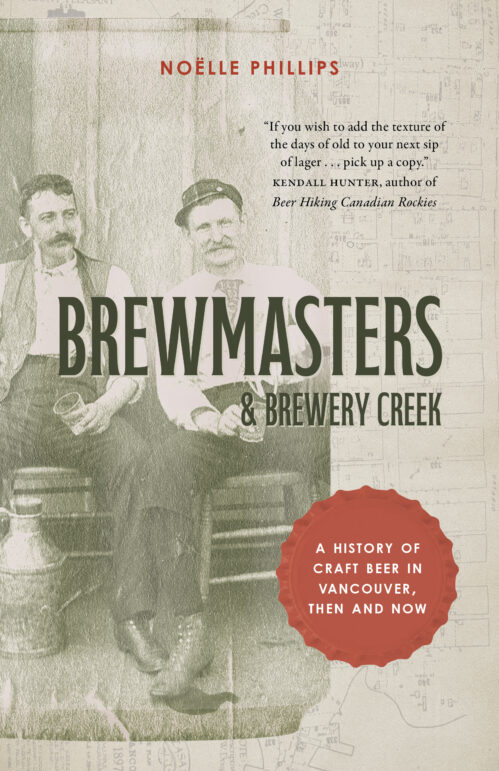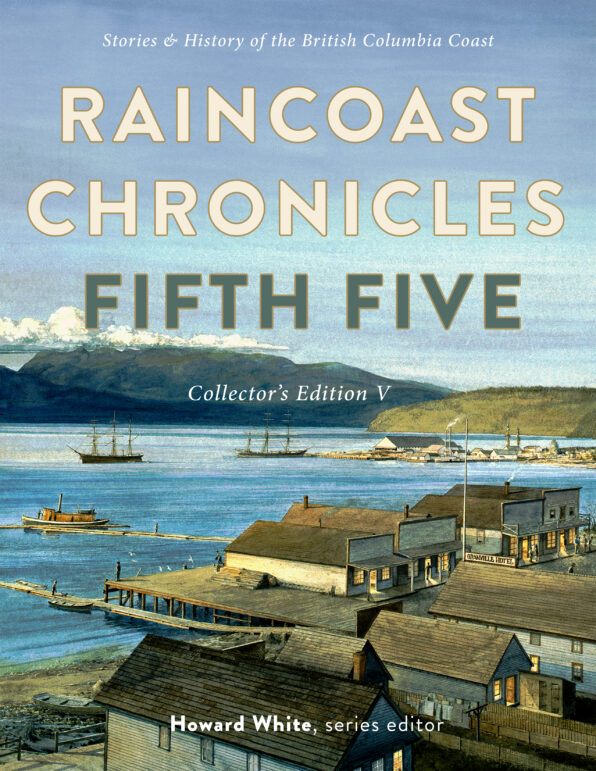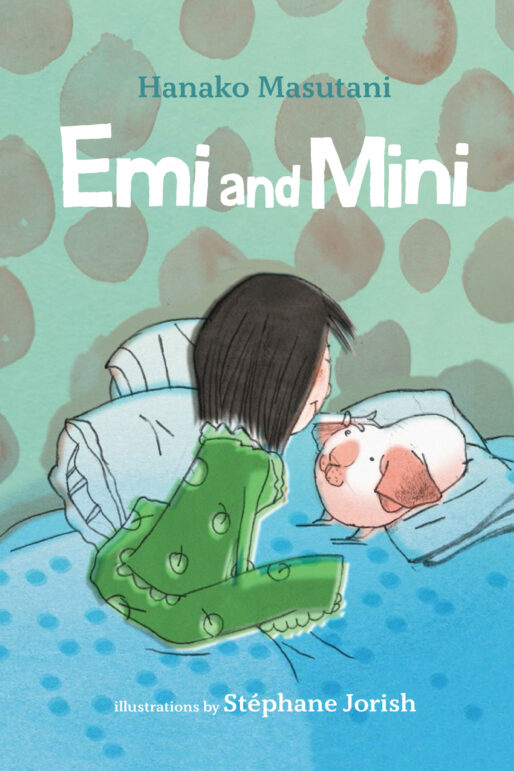From its complex history to its evolution into a modern, multicultural society, BC is a province defined by stories of adventures, settlement, and transformation. Take a literary journey with any of these picks into the key people, places, and events that have shaped BC’s identity—from early Indigenous cultures and European contact to the unique environment, personal narratives, and geography that have made it the vibrant place it is today.
Unbroken: My Fight for Survival, Hope, and Justice for Indigenous Women and Girls by Angela Sterritt (Greystone Books)
As a Gitxsan teenager living on the streets, Angela Sterritt used journaling for survival. Now a renowned journalist, she advocates for missing and murdered Indigenous women in Canada. In her debut memoir, she shares her journey and investigative work, exposing how colonialism and racism devalue these lives.
Kicked out of her family home, Sterritt faced violence in areas like Vancouver’s Downtown Eastside and Northern BC’s Highway of Tears. Today, she channels her empathy into demanding accountability and exposing systemic racism, showcasing the unbreakable strength of Indigenous women and their ability to build joyful lives.
Out Now!
Voices for the Islands: Thirty Years of Nature Conservation on the Salish Sea by Sheila Harrington (Heritage House Publishing)
Voices for the Islands compiles the stories of those who fought to protect vulnerable areas within their island communities. Author Sheila Harrington connects these narratives through her three-year sailing journey, interviewing over fifty veteran conservationists. Beginning in the 1980s, as logging and development threatened fragile ecosystems, the book showcases the creation of more than seventeen conservancies and the Gulf Island National Park Reserve. With vibrant photos, maps, and firsthand accounts from unsung heroes, Harrington details local protests, the history of conservancies, and how grassroots efforts secured support at local, provincial, and national levels, resulting in hundreds of new protected areas in the Salish Sea.
Out Now!
Taking Care of Where We Live by Merrie-Ellen Wilcox, illustrated by Amanda Key (Orca Book Publishers)
In Taking Care of Where We Live, readers will explore restoration projects in different ecosystems around the world, from the Ten Billion Tree Tsunami program in Pakistan to kelp forests in British Columbia. They’ll also find out how to take small actions for the ecosystems in their own communities, such as learning about the land where they live and the people who lived there, planting native plants and trees, and helping to remove invasive species. Taking Care of Where We Live is a testament to the power of putting our best human qualities together to repair some of the human damage to the planet and help make its ecosystems healthy again.
Out Now!
The HBC Brigades: Culture, Conflict and Perilous Journeys of the Fur Trade by Nancy Marguerite Anderson (Ronsdale Press)
Written by Métis author Nancy Marguerite Anderson, a descendant of a North West Company voyageur known to have lived and worked in Red River District for many years, this book explores the challenging landscape faced by First Nations people as they grappled with the choice to resist or support the fur company’s efforts to construct brigade trails over existing Aboriginal routes connecting Indigenous communities surrounding the trading posts. Anderson recounts how the devastating Cayuse War of 1847 compelled Hudson’s Bay Company men to take a newly explored overland trail to Fort Langley.
Out Now!
Discovering Nothing by David L. Nicandri (UBC Press)
In Discovering Nothing, David L. Nicandri examines the failed search for a Northwest Passage through the Pacific and its lasting impact on North America. He highlights the explorers and visionaries who sought a commercial route between the Pacific and Atlantic, noting that while the northern passage remained elusive, land bridges transformed Canada and the U.S.
Using explorers’ personal journals, Nicandri documents the many failed ventures and the technological innovations that followed, particularly the Canadian Pacific Railway and the Northern Pacific Railroad. Spanning from Captain James Cook’s final voyage in the eighteenth century to today’s climate change effects on Arctic passages, the book provides a comprehensive look at key expeditions and their outcomes.
Out Now!
Paradise Won by Elizabeth May (Rocky Mountain Books)
This updated edition of Paradise Won features a new foreword and highlights the importance of Indigenous rights and activism in combating climate change, protecting fragile ecosystems, and detailing the epic twelve-year struggle to stop logging in the unique global ecosystem referred to as “Canada’s Galapagos.”
Gwaii Haanas National Park Reserve, located in the southern part of Haida Gwaii (formerly Queen Charlotte Islands), protects an archipelago of 138 islands within the Haida territory, where the Haida people have lived for over 14,000 years. In the late twentieth century, plans to expand logging led to efforts to protect Gwaii Haanas, culminating in the creation of the “Haida Heritage Site” in 1985. Despite ongoing logging, a legal and political struggle ensued, ending in 1987 with the South Moresby Memorandum of Understanding, which established shared stewardship of the area as a national park, though many land claims remained unresolved.
Out Now!
Drumming Our Way Home by Georgina Martin (UBC Press)
Drumming Our Way Home explores what it means to be Secwépemc and how personal journeys can inform teaching and learning. Georgina Martin shares her experience of being taken from her mother shortly after birth, highlighting the intergenerational trauma faced by Indigenous peoples.
Alongside Elder Jean William and youth Colten Wycotte, Martin reflects on family, identity, culture, and the quest for traditional knowledge. This journey not only reveals the pain of cultural separation but also exemplifies reconnection through healing and intergenerational learning. Guided by her hand drum, Martin emphasizes its role in upholding community teachings.
Out Now!
The Geography of Memory by Eileen Delehanty Pearkes (Rocky Mountain Books)
This compact book records a quest for understanding to find the story behind the Snayackstx (Sinixt) First Nation. Known in the U.S. as the Arrow Lakes Indians of the Colville Confederated Tribes, the tribe lived along the upper Columbia River and its tributaries for thousands of years. In a story unique to First Nations in Canada, the Canadian federal government declared them “extinct” in 1956, eliminating with the stroke of a pen this tribe’s ability to legally access 80 per cent of their trans-boundary traditional territory.
Part travelogue, part cultural history, the book details the culture, place names, practices, and landscape features of this lost tribe of British Columbia through a contemporary lens that presents all readers with an opportunity to participate in reconciliation.
Out Now!
Who Shot Estevan Light? And Other Tales from the Salish Sea and Beyond by Douglas Hamilton (Caitlin Press)
In Who Shot Estevan Light?: Tales from the Salish Sea and Beyond, Douglas Hamilton shares captivating stories of maritime history and local folklore in this enthralling escape into the adventure and timeless tales of the West Coast. He recounts tales of the Flying Dutchman, a BC pirate linked to Butch Cassidy, and a lighthouse shelled by a Japanese submarine in 1942.
Hamilton introduces rumrunners using speed boats outfitted with WWI aircraft engines, and explores the tragic history of the steamship Grappler, a maritime disaster driven by racism and greed. He also discusses a Spanish map of “California Island” that resembled Vancouver Island, highlighting the era’s secrecy in mapping.
Available February 14, 2025
Brewmasters and Brewery Creek by Noëlle Phillips (Touchwood Editions)
Richly illustrated with photos, clippings, and maps, this engaging book offers a fresh look at Vancouver’s brewing history, appealing to both beer lovers and history enthusiasts. Now considered a premier craft beer destination, boasting over 70 breweries in the greater area and 35+ in Vancouver itself, beer has influenced the city’s culture, while Vancouver’s unique identity has shaped its craft beer scene.
In Brewmasters and Brewery Creek, beer historian Noëlle Phillips traces the history of independent brewing from Vancouver’s founding in 1886 to the onset of Prohibition in 1917. Skipping over the “big beer” era from 1920 to 1980, Phillips explores the rise of micro and craft breweries today, uncovering stories of lesser-known brewers through archival research, newspaper accounts, and personal interviews.
Out Now!
Raincoast Chronicles: Fifth Five by David R. Conn, Jean Barman, Judith Williams, and Rick James, with Howard White (Harbour Publishing)
Brimming with stories and images, this fascinating collection celebrates Harbour Publishing’s 50-year commitment to recording the unique ways of life that have sprung from the West Coast. Raincoast Chronicles Fifth Five features tales of maritime disasters, astonishing bush plane feats, ghost town stories, and the Schnarr sisters who kept cougars as pets, alongside contributions from renowned BC writers like Jean Barman, Al Purdy, and Anne Cameron.
Available November 2, 2024
Emi & Mini by Hanako Masutani, Illustrated by Stéphane Jorisch (Tradewind Books)
Emi and her family are new to the city of Vancouver. When Emi gets a new pet, Mini, a loveable fat hamster, she finds she is really not a huge fan of hamsters—she really wanted a dog. After Mini escapes from her cage and hides somewhere in the house, Emi finally realizes she loves her new little friend.
Out Now!


